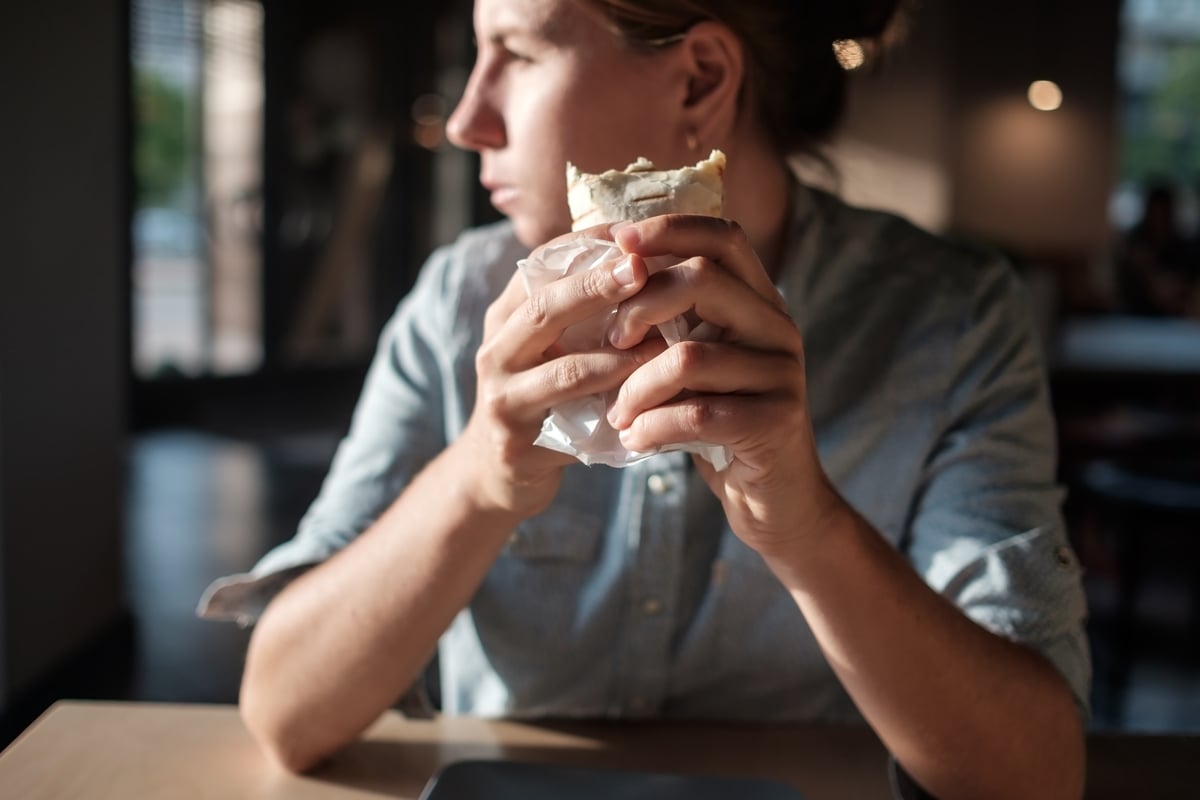
Source: Mike Mozart/Flickr.
Some time ago, I wrote about the need for investors to adopt scientifically responsible investing practices. Apparently, Chipotle Mexican Grill (NYSE: CMG) never read it.
On the quest to use "great ingredients," Chipotle Mexican Grill removed from its menu most ingredients derived from genetically engineered crops. While "great" and "genetically engineered" aren't mutually exclusive, the company's press release and GMO website make emotional arguments to appeal to a loud minority of consumers and destroy its own logic in the process.
Truthfully, most customers will never taste the difference in ingredients or care to look into the company's claims, but increased prices could unwind any perceived benefits in ridding the menu of genetically engineered ingredients. As could any public backlash from claims that don't quite add up. All of that could negatively affect investors in the long run.
Will burritos become more expensive?
According to Chipotle Mexican Grill, the answer is an emotionally charged "no":
While GMO advocates point to higher costs associated with producing non-GMO foods, Chipotle's move to non-GMO ingredients did not result in significantly higher ingredient costs for the company, and it did not raise prices resulting from its move to non-GMO ingredients.
It helps to take a closer look at the ingredients that were replaced and exactly what they were replaced with. Given the prevalence of genetically engineered corn (94% of America's harvest) and soy (93% of America's harvest), it makes sense to either avoid corn and soy altogether, or find the 6% and 7%, respectively, that neglect to take advantage of biotech tools. Chipotle Mexican Grill elected to deploy a combination of those strategies. After all, it's mighty difficult to make a flour tortilla without corn flour.
Here's a breakdown of the new ingredients and those they replaced:
|
Old Ingredient |
New Ingredient |
Use |
|
Corn flour (from genetically engineered corn) |
Corn flour (from non-genetically engineered corn) |
Tortillas |
|
Soy oil (from genetically engineered soybean) |
Sunflower oil (no genetically engineered varieties exist) |
Frying chips and tortillas |
|
Soy oil (from genetically engineered soybean) |
Rice bran oil (no genetically engineered rice varieties exist) |
Mixed into rice, used to fry vegetables |
|
Soy oil (from genetically engineered soybean) |
Canola oil (from non-genetically engineered canola) |
Tortillas |
Source: Chipotle Mexican Grill, The New York Times.
So, will these ingredients be more expensive than their predecessors? It depends on the agricultural yield of the crops compared to genetically engineered corn and soy (the former would be lower), the cost of seeds (the latter will be higher), and the cost of inputs (the former will be higher). It's a complex economic equation, although market prices do point to higher costs for Chipotle Mexican Grill.
In fact, The New York Times reports that using canola oil to make tortillas may result in "slightly higher" prices this year. The ability to pass costs to consumers should allow the company to keep margins relatively intact, but that may not last forever.
That leads us to ask: If the company could experience higher costs for its inputs, why did it decide to remove ingredients from genetically engineered crops?
#ChipotleLogic
Chipotle Mexican Grill launched a website to explain its rationale behind shunning biotech crops from its supply chain. Three reasons are listed:
- Scientists are still studying the long-term implications of GMOs.
- The cultivation of GMOs can damage the environment.
- Chipotle should be a place where people can eat food made with non-GMO ingredients.
The last reason is perfectly fine (although I would have chosen different language). Unfortunately, the logic doesn't quite work out for the first two.
The company claims that there is no scientific consensus on the environmental and human health of cultivating and consuming biotech crops, citing a single petition signed by 300 scientists. A recent Pew research poll found 412 scientists that thought genetically engineered foods were "generally unsafe." The only thing is, the other 3,336 scientists polled, representing 88% of the survey, said the opposite.
The company also said more independent studies are needed, since "most research was funded by companies that sell GMO seeds." Yet, the Genetic Engineering Risk Atlas, a publicly funded non-profit, found that half of the studies on biotech crop safety randomly selected were independently funded.

Source: Biofortified, Genetic Literacy Project.
The second claim is the most ridiculous. Chipotle Mexican Grill backs it up by calling out the overuse of pesticides, namely glyphosate, even calling attention to the World Health Organization's recent designation as "probably carcinogenic to humans" (in the same category as emissions from frying oils and working as a barber). Why doesn't this logic hold up?
It's worth pointing out that "non-GMO" doesn't mean "organic." The sunflower, rice, and canola crops that contribute oils to the company's new menu will still use pesticides and synthetic fertilizers, likely more than the crops they replaced. In some cases, that includes herbicide mixtures that use glyphosate. For instance, in California alone, over 222,000 acres of sunflower were treated with pesticides in 2012, including over 11,500 acres using some form of glyphosate.
It gets even more interesting. While the company was able to use canola oil instead of soy oil to make its flour tortillas, canola oil is a registered insecticide with the U.S. Environmental Protection Agency (link opens a PDF). In other words, this is a true statement: Chipotle Mexican Grill removed from its menu ingredients from genetically engineered crops to instead serve its customers an insecticide.

Canola oil is used for cooking and as an insecticide. See what I did there? Source: Ernesto Andrade/Flickr.
Of course, Chipotle Mexican Grill may be quick to point out that scientists state canola oil is safe for human consumption. And isn't that exactly the point?
What does it mean for investors?
Investors may cheer the move by Chipotle Mexican Grill as an innovative step to respond to consumer concerns about food. But it could result in higher food prices for customers in short order. Perhaps the costs get passed along without any reduction in customer count, but costs can only be passed along for so long before people seek alternatives, and the company's margins are negatively affected.
Additionally, rather than foster misinformation with emotional arguments to become the first fast food chain that avoids ingredients from genetically engineered crops, Chipotle Mexican Grill could have stood with science (like the Girl Scouts did) to position itself as a brand that provides a platform for a sensible middle ground for an even broader population. When the need for publicity trumps the need for making sound business decisions, I would hesitate to own shares.







